Dedicated to my grandparents, Joan, Ernest, Marg and Bruce.
STOP THE PRESS! The official Confiscated Toothpaste video of this trip is now available. Be sure to check it out after you’ve read the article!
We’re standing in a dingy parking garage on Edgware Road after a couple of outstanding days in Little Venice in London: our stay at the superb Colonnade Hotel punctuated by pints next door at the sensational Prince Alfred Pub (a former gin palace) and marred only by the poorly tempered minicab driver the Colonnade found to drive us to the aforementioned garage instead of calling us a regular cab.
After some arguments with this idiot about the price of our short trip, the capably brutish woman at the Sixt counter takes one look at our papers and walks to the office door where she bellows “RUSSELL!” into the gloom. Her reverberations finding no reply, she storms off to give Russell his come-uppance. Moments later the unfortunate Russell pulls up in a sparkling blue BMW 3, much to our delight.
“You got upgraded, innit,” he tells us grammatically.
We plot a haphazardly southbound journey out of London (who needs a map? Not us!), crossing the Thames over the Hammersmith Bridge. Before I continue, I should point out that the “we” in this story is my father and I. Having barely travelled together since I attained adulthood over a decade ago, he’s jealous of my mum’s trip to Italy for a language course and decides to come along on my trip. I’m grateful for the company and the father-son bonding, not to mention his knowledge of the countryside in the south of England. Though he’s not as
travelled as I, he’s been in this part of the world countless times, and nary a town nor hamlet appears on the map that he hasn’t previously graced with his parental presence.
By contrast, England never interested me until recently. My early backpacking days were filled with mountains and ice and snow and golden-skinned Scandinavian goddesses, and wild parties and cheap beer in hot, humid locales in South-East Asia. (Or at least that’s my rose-tinged reflection.) England didn’t seem exotic enough for this Aussie, the cultural appeal of a plate of fish and soggy chips cooked by a man named Roger and eaten on a sodden shingle beach in the rain.
Of course, I was merely ignorant of the fact that England is brilliant.
We meander through the West Sussex countryside, and our first stop is Arundel, where there is a whopping great castle. The sort of thing you dream of as a kid reading King Arthur stories is suddenly a reality, resplendent with towering turrets and ramparts where archers once stood. We continue on and stop for lunch at a pub in an impossibly picturesque stone building, the first of many pub meals with the quality of the food matched only by the charm of the location.
Finally, we reach the coastline at Bosham, and this is our final destination for the day. Bosham has a pretty little tidal harbour, and we arrive with the tide fully out and the boats lying on dry ground, which amazes me. At low tide there is an old road around the edge of the harbour wall, but as we drive around it we realise the tide is actually rising and we have to do a dicey three-point turn in several inches of ever-increasing saltwater and come back the way we came. Happily, we find a bed for the night at the local hotel, the sunset is spectacular and the people are friendly. I go for one of those evening wanders alone to take in the sea air and take photographs and the atmosphere is silently electric. It’s so good to be in a new place and on adventure!
Day 2 dawns with much promise and we zoom out of town in our Beemer. We round Portsmouth and Southampton and plot a course that takes us through the middle of the New Forest. I’m ecstatic in the rapidly changing landscape and the New Forest is like something out of a fairytale. It’s green and lush and rather than being the imposing, dark wood I imagined it’s surprisingly open and covered in mossy heathland. It’s beautiful. The forest has a number of wild ponies and donkeys and we spot a number when we stop at the little town of Lyndhurst. Keen to make some distance on the day’s trip, we stop only long enough for a brief foray through the trees, a chat to a B&B owner and a play with some cute piglets on a little farm. “There’ll be plenty more forest after this,” Dad claims but all too soon the misty forest disappears and we’re back out in a sunny coastal environment, this time in Dorset. It becomes my first regret on our trip and the first lesson. We in Australia always think of England as small, but there is a lot to see in these isles. Double the amount of time you think you will need.
The pretty little harbour of Weymouth becomes our first big navigational fail and one I’m ashamed to have to take responsibility for, as I was in the passenger seat navigating at the time. After spending some time in the pleasant sunny harbour full of fishing boats and cobblestones embedded with steel rails, soaking up some rays and the scenery, we plot a somewhat confusing trail out of town. The road goes by and about half an hour later we emerge into a pleasant sunny harbour full of fishing boats and cobblestones embedded with steel rails. The same bloody one! Yep, it turns out we’ve been driving in a large circle. “We’re definitely buying a map at the next servo,” Dad states. Though as we are males we of course don’t and by the end of the afternoon, we are well on our way along the Jurassic Coast to our destination of Lyme Regis, a resort town on a hillside in West Dorset.
Again due to the fact that we are males, we haven’t booked any accommodation ahead of time and we spend some time huffing and puffing up the hill until we end up in the strangest little oddity of a hotel I’ve ever stayed. Strange even by English standards, this building has been modified about a thousand times and it’s all tapering zig-zag hallways and levels that might best be described as “fluid”, with the actual altitude changing frequently as we walk between each other’s rooms, nominally both on “Level 1”. Dad’s developed a horrible chesty cough and we’ve decided on separate rooms for a couple of days both to try and prevent me getting sick (which fails) and to allow me to get a decent night’s sleep (which is more successful).
Did I mention that Lyme Regis is on the Jurassic Coast? Ah yes, I see I did. This coastline is bloody old, spanning the Triassic, Jurassic and Cretaceous periods, and the area is full of fossils of large and small non-hairy animals. We take a walk along the pebbly beach, which the Poms inexplicably call a shingle beach, and hang out on the harbour wall, which the Poms inexplicably call a “Cobb”. I’ve got my new camera, a Canon 6D, with me and I’m learning on the fly. But with the stunning surrounds it’s nearly impossible to take a bad shot. We finally retreat for dinner at a local pub, where the locals are as again chipper, charming and friendly.
The next morning, Dad is raving about a place called Sidmouth in Devon, where he swears he visited a small nearby pirate smuggling cove. It sounds pretty cool to me but it takes some time before we work out that the cove in question is Ladram Bay, further along the Jurassic Coast. It’s indeed a pretty little spot with its shingle beach and red cliffs, but owing to time considerations we decide not to go for a swim. Again, it’s a regret, as the sun is shortly thereafter replaced by mist and cloud for the duration of the trip. Though wonderfully atmospheric, and not too cold, the new climate is not really conducive to ripping ones clothes off and taking a dip.

Much of the roadway is overgrown with lush vegetation and periodically cut away- resulting in these green tunnels to drive through
The misty atmosphere is heightened along much of the journey by the sheer overgrowth of many of the roads. I come from a country where open spaces are a dime a dozen, the roads broad and straight and the eyes easily affixed on infinity. This is not the case with England, as masses of lush vegetation crowd the narrow, twisting roads. Even the farmlands are often edged with hedges, or bushy overgrowth which block the views on either side of the road and give a heightened feeling of isolation. In the wooded areas, the trees grow so wildly that periodically, a vehicle with a massive curved blade is brought through to cut a clear path through the canopy. The result is a natural green tunnel through which the traffic wends. With the added inclusion of mist, driving these roads is a spectacular and surprising experience, one I’ve not encountered anywhere else outside the British Isles.
It’s with this suitably grim, electric weather that we round the perimeter of the Dartmoor National Park (another place I’ll have to visit in the future) and end up in Plymouth, a wonderfully grey place. Famous in history for being the origin of the Mayflower in 1620 (a ship containing folks who settled North America) and the place from which Sir Francis Drake, playing bowls on Plymouth Hoe, was notified of the arrival of the Spanish Armada in the English Channel in 1588.
We are served lunch in a pub by yet another friendly fella. Following this we head up onto the Hoe. For those unaccustomed to English English, a “hoe” is a park or green area. English is a remarkably versatile language and one whose colourful lyricism is not always fully adopted by us colonials in Australasia or North America. While Dad and I are delighted about our new vocabulary and the town itself the weather is drizzling and bleak. I’m pretty keen to stay the night, being a fan of interesting large cities and Plymouth being the only large city on our week-long adventure. Dad however, as always, is worried about putting some more miles on the clock before the end of the day. He assures me I’ll enjoy what is still to come and Plymouth becomes another place I’m just going to have to revisit properly. We hoist the sails and set out on a couple of car ferries and some overgrown roads to reach Looe, a small coastal town on the southern coast of Cornwall.
Though I have some trepidation about yet another small fishing village, it’s impossible to be disappointed. Looe is chock-full of stunning vistas no matter which direction the eye is trained. Another incredible tidal harbour is full of boats sitting on mossy rock-bottom, low tide, devoid of water. We chance upon a nice B&B right on the harbour, the owner seeming genuinely delighted and oddly bewildered at the arrival of two souls from a land so far, as if we’d been the first she’d met (and perhaps we were?). She gives us an upstairs apartment which has only one bedroom, which I give to Dad, while I take the futon in the loungeroom. I take the advantage of the view and the tides to set up my GoPro camera to get a timelapse of the tide coming in. An autobiography of Richard Branson on the bookshelf has the title page signed personally by the book’s illustrious subject, a personal message proclaiming “this book would have been impossible without your help”. When we ask the owner about its provenance, she looks puzzled, offering only that “Perhaps it belongs to my daughter or she knows something about it.” We resist the urge to steal the book.
We take a long walk through town and end up on the beach on the other side of the harbour, and we again get a delicious dinner in the local pub.
Later that night, we are awakened by a phone call from my brother in Australia. My grandfather, who has not been well, has had a stroke, and though still conscious, he can barely speak or move and with other various afflictions is not expected to survive much longer. I manage to call him in the hospital and tell him I love him. He’s my last living grandparent. The rest of the trip is filled with uncertainty – I am due to present at a scientific conference in Paris the following week, my mother is Italy, my father in England, and my sister is on a South Pacific cruise. Very few relatives are actually in Australia, and we begin to question whether we can or should cancel the trip and head home.
We decide to hightail it the next day deep into Cornwall. We make an early stop in Polperro, another stupidly scenic little fishing village the likes of which are amazingly bountiful in England. We cross the River Fowey on the Boddinick car ferry to Fowey (pronounced “Foy”) before cruising down the Roseland Peninsula to St Mawes. St Mawes is another one of those places that looks amazing- a bountiful harbour fringed by sandy beaches and green headlands- and we wish we could stop. It gets put on the list for future destinations. We cruise along the waterside Castle Road and I jump out of the car at St Mawes Castle- ”among the best-preserved of Henry VIII’s coastal artillery fortresses, and the most elaborately decorated of them all.” We then cross the River Fal at the King Harry Ferry.
But after this we hightail it down the Cornwall peninsula all the way to Penzance. Being a big fan of musical theatre, I’m excited to stay in this town of pirates and have a look around, but Dad as always is recommending another destination, St Ives to the north. Again, he is right. We end up in another crazy little hotel, run by an hilariously eccentric Englishman, a photography teacher who insists on teaching me everything there is to know about my new Canon 6D. He even lends me his own remote control timer, and will not take no for an answer. Such above and beyond dedication to our comfort begins to feel almost normal in this part of the world. Meanwhile, we are perched dizzyingly above St Ives’s tidal harbour, the boats as usual laying on bare sand, and the town is laid out tantalizingly before us. We book two nights so we can explore Cornwall properly, and we go (where else?) to the pub for a pint. Dinner is at a nearby pizzeria, where new owners have just set up shop, and despite making a mistake with our pizzas and having to remake (they stuck to the spatula) the end result is as delicious as the owners are apologetic and friendly.
Day 6 of our journey dawns and the owner of the hotel is dressed in his breakfast suit and making merry with the guests in the breakfast room. It’s full English with all the trimmings for both of us. Our plan today is to explore the north coast of Cornwall. We’re no longer on the English Channel, facing for the first time the expanse of the Atlantic, and it’s a treat. The beaches are sandy and have some nice surf and I begin to wish for a board (and more time to actually be able to use it). The rest of the coastline is lush and green and breath-taking clifftops fill the landscape. We head up the coast to Newquay with its stunning cliffs and beaches and pretty harbour. We then bear north to Tintagel.
As we dash from one cliff top to the next, we talk about all of my grandparents, and particularly my Dad’s mother who died when I was 7. “She would have been pretty angry about dying,” Dad told me. She was only in her 70s, a poet and a great lover of life. “Both your Gran and Grandfather would have loved all the things you and the other kids got up to with your lives.” Her husband, my other grandfather, died when I was 17 on the night of my very last exam in highschool, Ancient History.
Speaking of ancient history, Tintagel is the climax of the journey, its eye-popping scenery defying superlatives. A stupendous isthmus topped by cliffs and surrounded by ocean far below is the site of castle ruins, said to be the actual birthplace of the legendary King Arthur. Mountain goats plod amongst the ruins, and far below on a tiny beach is a great cave where Merlin the Magician was supposed to have lived. It’s an incredible site to say the least. As we begin the walk up the hill huge hill back into town, our hearts pounding from exertion and adventure, a local bloke with a old Land Rover offers a ride up the hill for 2 pounds. Lazily we agree, sharing the ride with a bunch of pensioners. We’re next in our trusty Beemer making a beeline for Port Isaac, back south, and apparently the setting for some British TV show watched by old people. My Dad of course is well familiar with it, I’ve never heard of it and the name escapes me now. Port Isaac is great though, another perfect little fishing village with the late afternoon light making it all the more memorable. It becomes obvious that England has the design of picturesque fishing villages to an artform. If procuring perfect villages in stunning surrounds were an Olympic sport, I hesitate who might challenge her for the gold medal. Well, maybe Norway, but let’s not go there right now!
Back in St Ives again for one more night and we hit the pub with gusto. Ah England! The England I prejudiciously thought offered me nothing has served up more spectacular scenery and more thought provoking quirky characters to last us a lifetime. That longing for more time in this part of the world is beginning to transform into an urge. But we have to be grateful for all of life’s experiences, at this time more than ever. We’re so lucky, and it’s so good, to be on an adventure!
Our final day dawns and we are ambitious. We’re going first to Land’s End, and then we’re going to put as many miles on the clock as possible to get up north into the Cotswolds. We calculate that it is somewhat onerous but doable and set out early. But we are somewhat disappointed to arrive at Land’s End and find what seems to be a mini-theme park blocking our path. “Welcome to Land’s End!” the parking attendant greets us chirpily. “Entry is five pounds.”
“Really?” I ask from the driver’s seat, disappointed. “All we want to do is visit the coast.”
“Look, it’s no problem. Just park up the road and you can walk down to the coast and stay as long as you like.”
Let this be a lesson to those who might otherwise see the themed attraction and turn around! It turns out that Land’s End, the point at which the British Isles end and tumble into the Atlantic, is no less spectacular once you finally see it than any other point on the Cornish coast. Huge granite boulders are strewn across the landscape and waves crash against the cliff below, as though angry to suddenly find a continent blocking their path. It’s brilliant.
But this is no time to be fart-arsing about, and after taking in the views (and the rampaging elements) we hotfoot it back to our car and up the A30. We pay one last visit to Penzance and say goodbye to the pirate coastline with a view over St Michael’s Mount, a tidal island off the coast.
The rest of the day is spent driving at freeway speed towards London. Around 4 pm we arrive in what feels like another world, the Cotswolds. It’s all still very English, but it’s the upper-crust part of England, quiet and peaceful and quite a contrast to Cornwall. We pass through several villages all constructed consistently from the local golden stone. The buildings are so breathtakingly beautiful, and we arrive in Bibury, a strong contender for the most beautiful village I’ve ever seen. It’s almost too perfect, and the setting sun casts it’s perfect honey light over the honey-coloured houses.
We stop at Bibury Court, a grand old house on a large and beautiful acreage. We ask for a room and are promptly told by the curt receptionist that the hotel is full. He seems a little too dismissive of us and we are left wondering whether our appearance may have let us down. We are not in coats and trousers like the local Cotswold gentry, and we have been driving all day, but even so we don’t look terrible- we even arrived in our BMW for Christ’s sake! Nonetheless, this man, who is clearly not British but perhaps French or Polish, is the first unfriendly person we’ve met all week. Though my mind screams “conspiracy”, it is undeniable as we head back through town past the glorious old houses of Arlington Row that there are a lot of tourists in this small village. At The Swan, a lovely pub, I am given the same rejection (though more apologetic this time) despite polishing up my appearance before entering. After our third rejection at the Catherine Wheel, the only other obvious accommodation in town, my paranoia reduces and my irrepressible self-esteem returns, but disappointment is rising as it looks like for the first time all trip we won’t find a bed in our choice of environs.
But the gents drinking at the bar of the Catherine Wheel in their tweed coats come to our rescue. “I think Mrs Maple might have a vacancy,” declares one, and goes off to call her. “She didn’t ahnswer,” he says, returning a short time later.
“How long are you here for?” asks another elegant chap, taking a break from his pint to take an interest in us.
“Just one night,” we reply.
“And what is your budget?” he asks. “Would say, a hundred pounds suit you?” We reply that that sounded fine. “I see,” he responds. Some seconds pass before he ventures, “I’ll have to check with my wife, but we run some holiday cottages we normally rent out for longer periods. However it just so happens that one is vacant for tonight. Perhaps my wife might be amenable to your staying, should it suit you.”
We reply that it should suit us very much, and to our surprise the man puts down his beer and farewells the other drinkers. We’re amazed by the generosity and friendliness of the English and happy that even in an upmarket place like the Cotswolds, people are still willing to go out of our way to help us, wiry colonials and all! He leads us across the road and to a series of little cottages, and it looks like we’ve found our spot. He even alleges that the standard of the Bibury Court has dropped in recent years. I laugh secretly in the knowledge that despite this, they still kicked us out. However, then it comes to payment, and we have no cash on hand and ask if he can take cards. As it is only a small family business, he regretfully informs us that he cannot. The man seems quite worried by this turn of events. “I must admit I simply can’t see a way around this,” he deplores.
“What about if we head back out to the highway and find an ATM?” we ask hopefully.
“I see. I see. Yes, that should work. But I must warn you, we have friends coming for a drink at a quarter past seven. You’ll have to return no later than seven.”
“We can manage that. But first do you want to ask your wife if it’s ok we stay? We don’t want to get you in trouble.”
“Oh my wife? No don’t worry,” he says, “I’m sure it shall be fine.”
For dinner, we nip back across to the Catherine Wheel dressed in jackets and trousers. But the elegant gents are gone and the place is full of foul-mouthed rowdy revellers in push up bras and t-shirts. The presence of the same bartender of earlier presents the only continuity of the night. We eat our dinner, which is just as tasty as every other pub we’ve ever been to in Britain, and leave feeling somewhat confused.
The stay in the cottage is comfortable but I wake up in the wee hours with surprisingly shocking asthma. Some hours later, my mother calls from Italy to tell me my grandfather has died.
Somewhat despondent, and with the morning air full of uncertainty, we take our last sunrise photos around the beautiful, sombre Bibury before leaving to have cream teas for breakfast at the equally lovely Burford. “Excuse me, are you Australian?” asks the only other man having breakfast from the other side of the room, before engaging us in friendly banter.
We end our bittersweet stay in the Cotswolds and our bittersweet drive around southern England, and cruise towards London, arriving at King’s Cross around 11. To our pleasure, the drive in is as simple as one could hope for. The directions from Sixt are excellent and we find the drop off station in no time (I chuckle to find that I’ve actually been there before on another adventure a year earlier). The drop off is a breeze and this ease of service, combined with our stellar upgrade, and lack of hidden charges which so badly mar the other “big names” of car hire, fills me with admiration for Sixt. I can whole-heartedly recommend them, but book well ahead for the best rates.
Not more than five minutes after arriving in London, we’re hauling our suitcases down the road towards the sublime St Pancras station, and an hour later we’re on a train to Paris for what might or might not be our next adventure. I drift restlessly in and out of sleep, not knowing whether I am in England or France, dreaming piece-meal about the peculiarities of Life. But that’s another story for another time altogether.
I hope you enjoyed my piece about a pleasant drive in South-West England. Don’t forget to check out the video of this trip at our YouTube Channel. If you’ve done a similar trip and have tips, or if you live in this fair part of the world, I’d love to hear from you in the comments.


















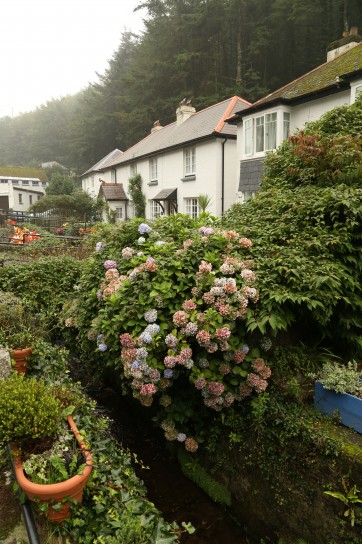















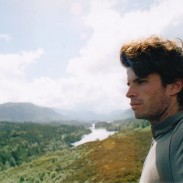
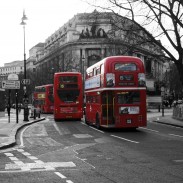

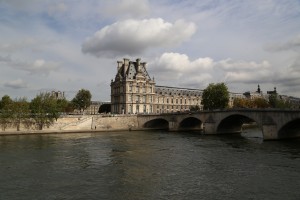
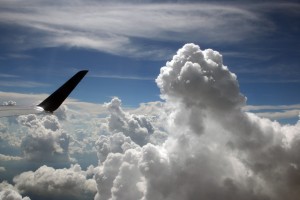
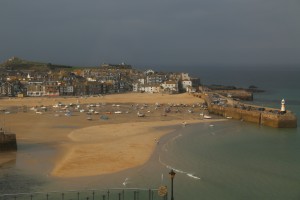
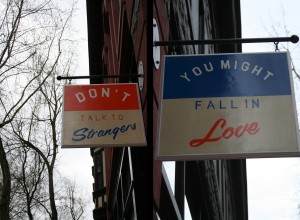
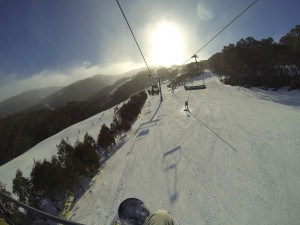
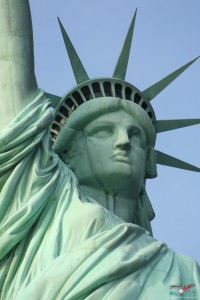
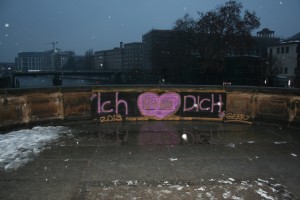
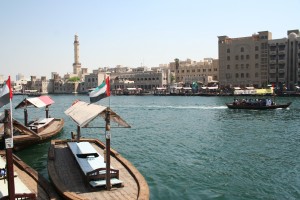
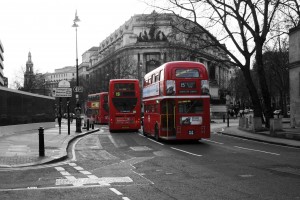
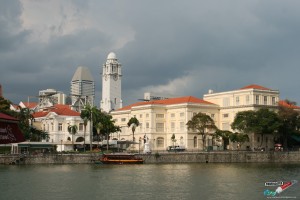

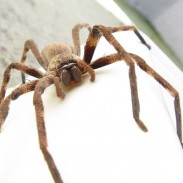
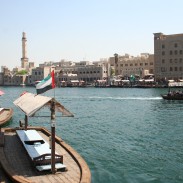
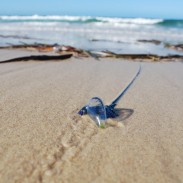
Recent Comments
18 Strange Observations of America (from an Australian Living in the USA)
11 Cool Things to Do in Dubai
11 Cool Things to Do in Dubai